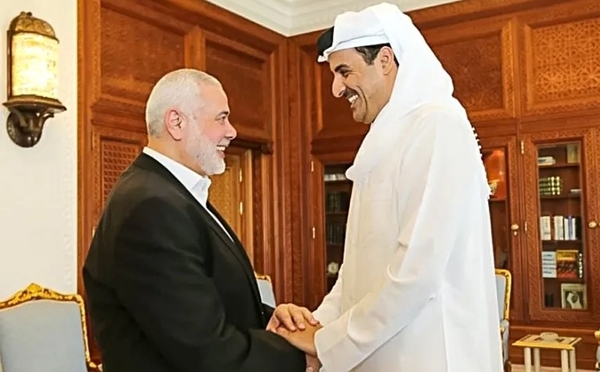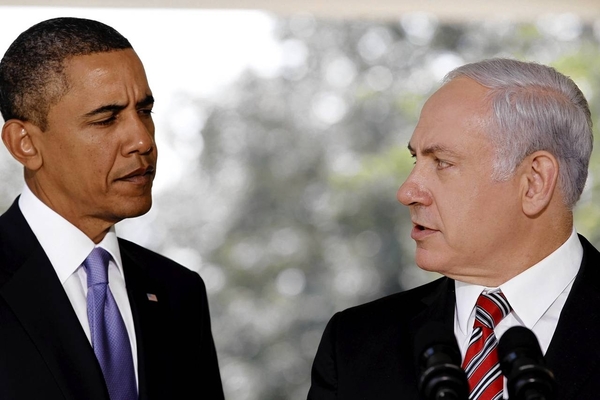L'Informale: Please comment on the Israel-Hamas hostage deal.
Daniel Pipes: Where does one start? 1. Benjamin Netanyahu made his name as a counterterrorism specialist who repeatedly insisted that one does not negotiate with terrorists. 2. Israel has a very painful history of releasing security prisoners who then went on to wreak destruction on it; Yahya Sinwar, a leader behind Oct. 7 is just the latest example. 3. Israel passed a law in 2014 forbidding exactly this sort of exchange; how is this legal?

L'Informale: Will the deal prevent Israel from achieving victory in Gaza?
DP: I expect so, yes. The government issued a statement insisting it "will continue the war to ... complete the elimination of Hamas and ensure that there will be no new threat to the State of Israel from Gaza," but I believe those to be hollow words. In addition to the hostage deal, Israel has resumed providing water, fuel, and food to Gaza. It feels like a return to Oct. 7, just with with greater destruction in Gaza.
L'Informale: Alex Nachumson writes that "freeing the Israelis hostages, brutally ripped from their homes, should be a paramount goal of the operations. But ... the hostages are more likely to be released when Hamas feel their time is running out, when they feel the Israeli boot on their neck." Do you agree?
DP: Yes. But more fundamentally, one cannot fight a war if the families of hostages sit in the war room and have a large role in determining strategy.
L'Informale: Qatar has had a major role in brokering the deal as financier of Islamism and also as mediator between terrorists and democracies. Your opinion?
DP: Hafiz al-Asad, the dictator of Syria, in the 1980s played a game of arsonist and firefighter; he supported the groups that captured American and other hostages, then ceremoniously released them, to wide acclaim. Qatar's Tamim bin Hamad Al Thani has now reprised this role, with no less skill.
 All smiles: Qatar's Tamim bin Hamad Al Thani and Hamas leader Ismail Haniya in Doha in December 2019. |
L'Informale: The U.S. government has seemingly attempted to steer Israel's response almost from Oct. 7. Is that in fact the case?
DP: Very much so. In retrospect, Joe Biden's strong support for Israel looks like both a true emotional response and also an effort to gain influence over the government.
L'Informale: How much is Israel's foreign policy influenced by Washington's wishes?
DP: Washington's influence fluctuates. As a rule, it increases in times of good relations and decreases in times of bad ones. That's why I prefer not-so-good relations. That way, Israel makes fewer mistakes under American pressure.
 No smiles: Obama and Netanyahu disliked each other - and that benefited Israel. |
L'Informale: In a recent article of yours titled "Israel Has Quickly Reverted to Its Bad Old Policies"; why so?
DP: For the same reason that Palestinians invariably revert to their bad policies: because powerful historical mentalities have trapped both sides. No matter how dysfunctional, the same attitudes and reflexes reappear ad nauseum: Palestinian rejectionism and Israeli conciliation. Immediately after Oct. 7, it seemed that Israelis had broken with conciliation; now we see that was not the case, at least among the politicians and the security establishment.
L'Informale: Why has Israel never achieved victory against its Palestinian enemies?
DP: Because it never tried. Israel successfully defeated its Arab state enemies – Egypt, Jordan, and Syria in particular – but it desisted from pressing its advantage against the Palestinians. Think 1982, when it desisted from killing Yasir Arafat. Or 1993, when it gave him control over adjoining territory. Or 2005, when it unilaterally withdrew from Gaza.
L'Informale: How will Israel's war against Hamas end: a failure, a half-failure, or victory?
DP: A half failure looks most likely. Perhaps popular dissatisfaction with the war against Hamas will then lead to an anger that brings on a change that ends the historic Israeli mentality of conciliation.